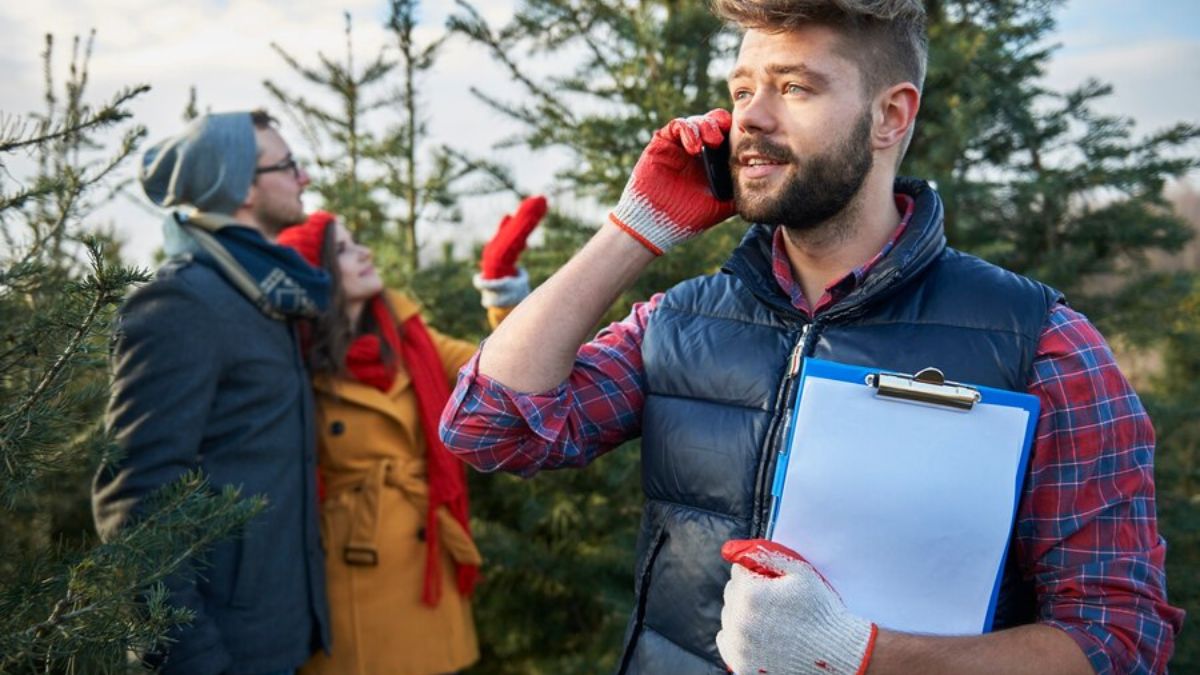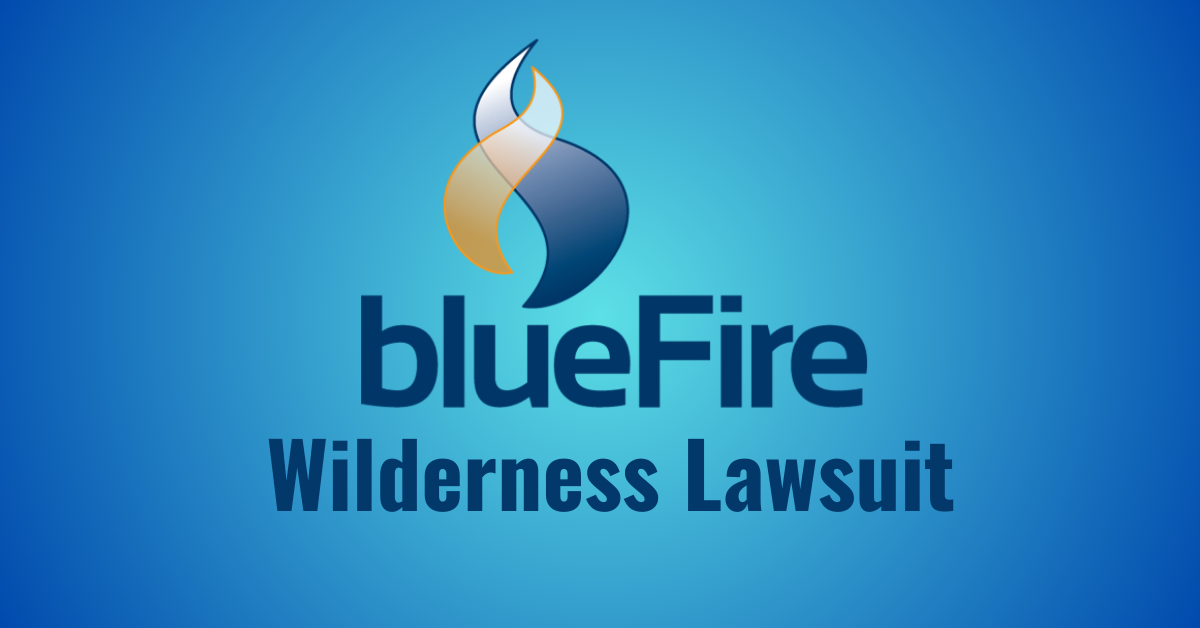Understanding the Controversy: A Deep Dive into the Bluefire Wilderness Lawsuit
Introduction to Bluefire Wilderness

Nestled amidst the rugged beauty of the wilderness, Bluefire Wilderness once stood as a beacon of hope for troubled teens seeking healing and transformation. However, recent events have cast a shadow over this idyllic sanctuary. Join us on a deep dive into the controversy surrounding the Bluefire Wilderness lawsuit, where allegations and responses collide in a battle for truth and accountability. Let’s unravel the layers of this complex situation and explore its implications on not just one program but an entire industry dedicated to helping vulnerable youth find their way back to light amid darkness.
BlueFire wilderness lawsuit
Bluefire Wilderness, a renowned program in the troubled teen industry, recently found itself at the centre of controversy with a lawsuit that raised eyebrows and questions. The allegations against Bluefire Wilderness were serious, claiming misconduct and negligence in their treatment methods. This sparked concerns among parents and professionals alike about the safety and ethics within such programs.
In response to the lawsuit, Bluefire Wilderness stood firm in defending its practices, emphasizing its commitment to the well-being of the teens under its care. It highlighted its rigorous protocols and dedication to providing a safe environment for growth and healing.
However, as legal proceedings unfold, experts in the field are closely analyzing the case’s implications on regulations governing wilderness therapy programs. The outcome could potentially set precedents for accountability standards across similar facilities nationwide.
The impact of this lawsuit extends beyond just one program; it shines a spotlight on the troubled teen industry as a whole. It raises important questions about oversight, transparency, and ensuring that vulnerable youth receive ethical and effective treatment options.
Allegations Against Bluefire Wilderness

Allegations Against Bluefire Wilderness have sparked controversy and raised concerns within the troubled teen industry. Accusations range from negligence to misconduct, leaving many questioning the practices employed at the wilderness therapy program. Families who entrusted their children to Bluefire Wilderness are now left wondering if their loved ones were truly in safe hands.
Reports of inadequate supervision, lack of proper training for staff members, and allegations of emotional and physical mistreatment have cast a shadow over the reputation of Bluefire Wilderness. These claims have drawn attention from regulatory bodies and advocates for stricter oversight in youth programs.
The gravity of these allegations cannot be understated, as they call into question not only the integrity of Bluefire Wilderness but also raise broader issues regarding accountability within therapeutic settings for troubled teens. The fallout from these accusations may have far-reaching implications for how such facilities operate moving forward.
Responses from Bluefire Wilderness
Bluefire Wilderness has responded to the allegations brought against them with a commitment to transparency and accountability. They have acknowledged the concerns raised by former students and their families, emphasizing the importance of ensuring the safety and well-being of all participants in their program. In light of these accusations, Bluefire Wilderness has implemented new policies and procedures aimed at improving oversight and communication within their organization.
In a statement released to the public, Bluefire Wilderness expressed remorse for any harm experienced by past participants while also defending its overall approach to wilderness therapy. It emphasized its dedication to providing therapeutic interventions that are tailored to each individual’s needs, striving for positive outcomes in every case.
Moving forward, Bluefire Wilderness is actively engaging with regulatory bodies and industry experts to address any shortcomings identified during this challenging time. Their goal is clear: to learn from past mistakes and continue offering support to struggling teens safely and effectively.
Impact on the Industry and Community
The Bluefire Wilderness lawsuit has sent ripples through the troubled teen industry and surrounding community. The allegations raised have brought to light the need for more transparency and accountability in programs catering to at-risk youth.
Industry professionals are now scrutinizing their practices, ensuring they adhere to ethical standards and prioritize the well-being of the adolescents under their care. Community members are also paying closer attention, demanding clearer guidelines and oversight for such facilities.
The impact of this lawsuit extends beyond just one program; it serves as a wake-up call for all institutions working with vulnerable populations. It underscores the importance of operating with integrity, empathy, and a genuine commitment to helping those in need.
Moving forward, it is crucial for stakeholders in the industry and community to work together to create safer environments for troubled teens. By learning from past mistakes and implementing necessary changes, we can strive towards a future where every adolescent receives the support they deserve.
Lessons Learned and Changes Made by Bluefire Wilderness
Bluefire Wilderness has undergone a period of reflection and growth in response to the challenges brought forth by the lawsuit. The experience has prompted the program to reevaluate its practices and policies, focusing on enhancing transparency and accountability. Through internal reviews and consultations with experts in the field, Bluefire Wilderness has implemented changes aimed at improving the overall well-being of its participants.
The lessons learned have been instrumental in shaping a more robust framework for operation, emphasizing ethical treatment standards and ensuring that participant safety remains paramount. By fostering a culture of continuous improvement, Bluefire Wilderness is committed to upholding best practices and evolving with an ever-changing landscape. These adjustments serve as a testament to their dedication to providing effective therapeutic interventions while addressing past shortcomings.
As they navigate through this transformative journey, Bluefire Wilderness remains steadfast in its mission to support struggling youth on their path toward healing and growth. The commitment to learning from past missteps demonstrates resilience and a genuine desire to uphold integrity within the troubled teen industry.
Conclusion: Moving Forward with Transparency and Accountability

As we navigate the complexities of the Bluefire Wilderness lawsuit, one thing becomes increasingly clear—the importance of transparency and accountability in the troubled teen industry. Moving forward, all wilderness therapy programs must prioritize open communication and ethical practices.
By embracing transparency, organizations like Bluefire Wilderness can rebuild trust with families and stakeholders who have been affected by recent events. Accountability must not be seen as a burden but rather as a necessary step towards ensuring the well-being and safety of every individual under their care.
In an ever-evolving landscape, learning from past mistakes and actively seeking improvement is key. By fostering a culture that encourages feedback, growth, and honest reflection, wilderness therapy programs can strive towards higher standards of care for struggling youth.
Moving forward with transparency and accountability is not just about addressing past issues but also about creating a future where integrity and responsibility are at the core of every decision made within these programs.
Introduction to Bluefire Wilderness and the Lawsuit
Nestled in the serene wilderness of Idaho, Bluefire Wilderness has long been known for its therapeutic programs designed to help struggling teens navigate challenges and find their path to healing. However, recent events have cast a shadow over this reputable facility, with the emergence of a lawsuit that has sparked controversy and raised questions about the practices within its program.
The lawsuit alleges misconduct and negligence on the part of Bluefire Wilderness staff, accusing them of failing to provide adequate care and supervision for participants. These serious allegations have brought scrutiny not only to Bluefire Wilderness but also to the troubled teen industry as a whole.
As investigations unfold and details come to light, it becomes essential for transparency and accountability to take centre stage in addressing these concerns. Stay tuned as we delve deeper into this unfolding story surrounding Bluefire Wilderness and the impact it may have on those involved.
The Allegations Against Bluefire Wilderness
Bluefire Wilderness, a renowned therapeutic wilderness program for troubled teens, was recently at the centre of controversy due to allegations raised against its practices. Concerns were voiced regarding the treatment of participants and the overall safety protocols within the program.
Some former participants alleged instances of mistreatment and neglect during their time at Bluefire Wilderness. These claims ranged from inadequate supervision to emotional harm inflicted on vulnerable teenagers seeking help.
The allegations sparked heated debates within the community about ethical standards in such programs and the importance of transparency when dealing with at-risk youth. Many questioned whether these wilderness programs are truly equipped to handle complex mental health issues effectively.
As investigations unfold and testimonies are shared, it becomes clear that accountability and oversight are crucial in ensuring the well-being of all individuals involved in such programs. The spotlight is now on Bluefire Wilderness to address these serious concerns and make necessary changes moving forward.
Response from Bluefire Wilderness
In response to the allegations raised in the lawsuit, Bluefire Wilderness has emphasized its commitment to the safety and well-being of all participants. It has stated that it takes any concerns seriously and is dedicated to providing a supportive and therapeutic environment for teens in need.
Bluefire Wilderness has expressed regret over any incidents that may have occurred under its care and outlined steps taken to address these issues. It has highlighted its focus on continuous improvement and staff training to ensure the highest standards of care are maintained at all times.
Acknowledging the gravity of the situation, Bluefire Wilderness has pledged transparency and accountability moving forward. They have reassured families, stakeholders, and the community that they remain steadfast in their mission to help troubled teens navigate challenges while prioritizing safety above all else.
Analysis of the Legalities Involved
The legalities surrounding the Bluefire Wilderness lawsuit delve into complex issues of accountability and responsibility. Legal experts scrutinize contracts, protocols, and adherence to industry standards. Any deviation from these can raise concerns about compliance with regulations aimed at ensuring the safety and well-being of participants.
Key considerations include the duty of care owed by wilderness therapy programs to their clients. This encompasses providing a safe environment, appropriate supervision, and effective communication channels for both staff and families involved. Negligence claims may arise if these standards are not met or if the duty owed is breached.
Furthermore, contractual agreements between programs and families play a pivotal role in defining expectations and outlining recourse in case of disputes. Clarity in contractual terms is essential to avoid misunderstandings that could potentially lead to legal conflicts later on.
In essence, analyzing the legal aspects of the Bluefire Wilderness lawsuit illuminates crucial factors that underpin ethical practices within the troubled teen industry.
Impact on the Troubled Teen Industry
The recent lawsuit against Bluefire Wilderness has sent shockwaves through the troubled teen industry. It has raised questions about the methods and practices employed by wilderness therapy programs aimed at helping struggling adolescents. The allegations have sparked a conversation about accountability, transparency, and ethical standards within these facilities.
This controversy has illuminated the need for stricter regulations and oversight in the troubled teen industry to ensure the well-being and safety of vulnerable youth. It has prompted stakeholders to reevaluate their approaches to therapy and rehabilitation, emphasizing the importance of evidence-based practices and professional standards.
As scrutiny intensifies, other wilderness therapy programs may face increased scrutiny from both regulatory bodies and concerned parents. This could lead to a paradigm shift in how these facilities operate, with a greater emphasis on ethical treatment protocols and client welfare.
This lawsuit serves as a wake-up call for the troubled teen industry to prioritize integrity, honesty, and best practices in order to regain the trust of families seeking help for their children.
BlueFire wilderness lawsuit

Bluefire Wilderness, a renowned program in the troubled teen industry, recently found itself embroiled in a lawsuit that sent shockwaves through the community. Allegations surfaced against Bluefire Wilderness, painting a troubling picture of misconduct and negligence within their operations. The accusations raised serious concerns about the safety and well-being of the adolescents entrusted to their care.
In response to the lawsuit, Bluefire Wilderness vehemently denied any wrongdoing, emphasizing its commitment to providing a safe and therapeutic environment for struggling teens. They highlighted their dedication to upholding industry standards and ensuring transparency in their practices. However, sceptics questioned these assertions and called for thorough investigations into the allegations brought forth.
The legal complexities surrounding the case added further layers of intrigue to an already contentious situation. As discussions around accountability and responsibility continued, stakeholders closely monitored developments with keen interest. The outcome of this legal battle could potentially reshape perceptions of wilderness therapy programs like Bluefire Wilderness in profound ways.
Stay tuned as we delve deeper into this unfolding saga and explore its implications for the troubled teen industry as a whole.
Conclusion: Moving Forward and Seeking Accountability
As we navigate the complexities of the Bluefire Wilderness lawsuit, it is evident that transparency and accountability are crucial in the troubled teen industry. Moving forward, programs like Bluefire Wilderness need to uphold high standards of care and safety for all participants. By acknowledging past mistakes, learning from them, and implementing necessary changes, Bluefire Wilderness can strive towards a future where trust and integrity define their practices. Seeking accountability not only benefits those directly involved but also shapes the landscape of wilderness therapy programs for the better. Let us collectively hold institutions accountable and work towards a safer environment for vulnerable individuals seeking help and healing.



